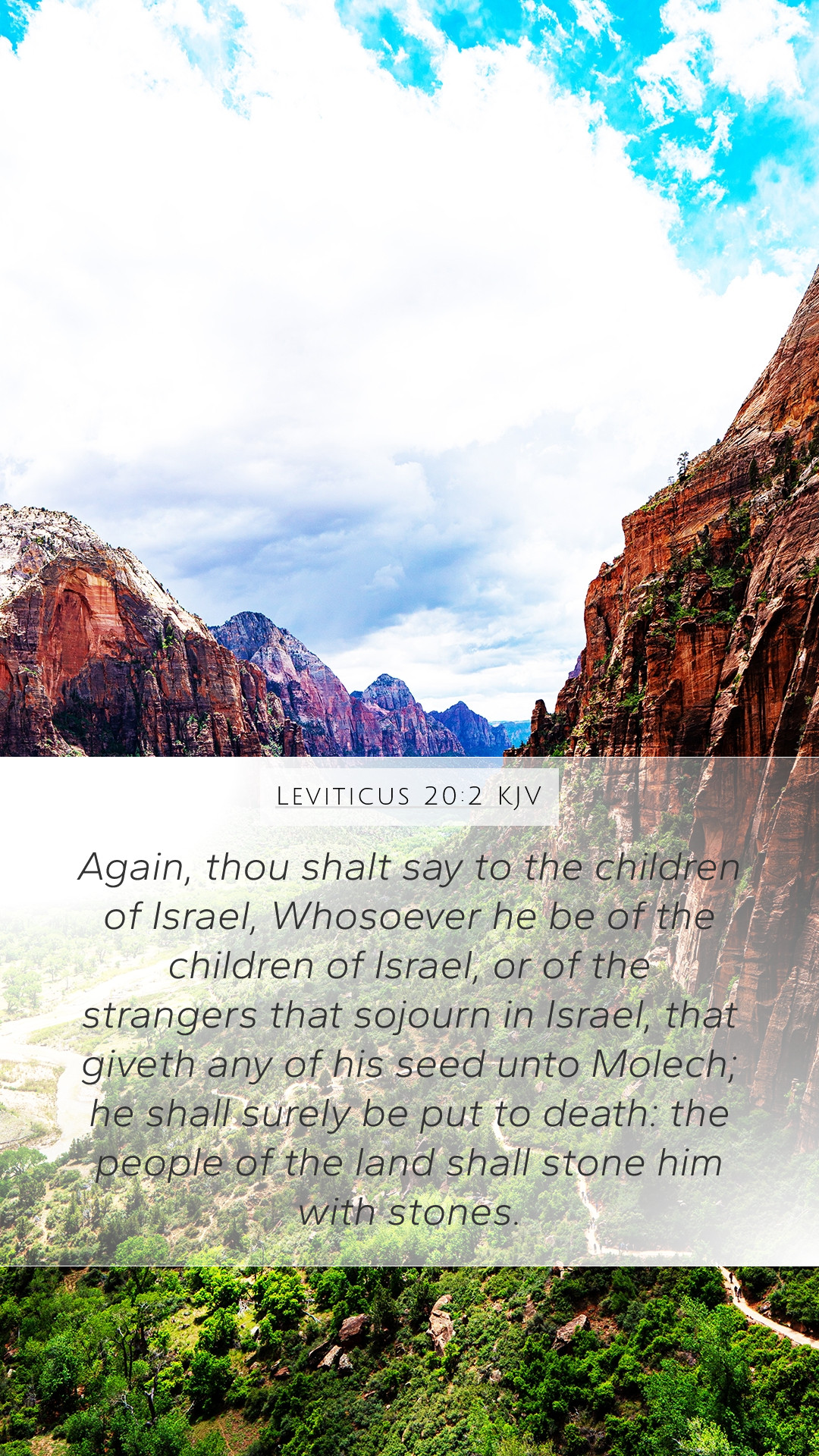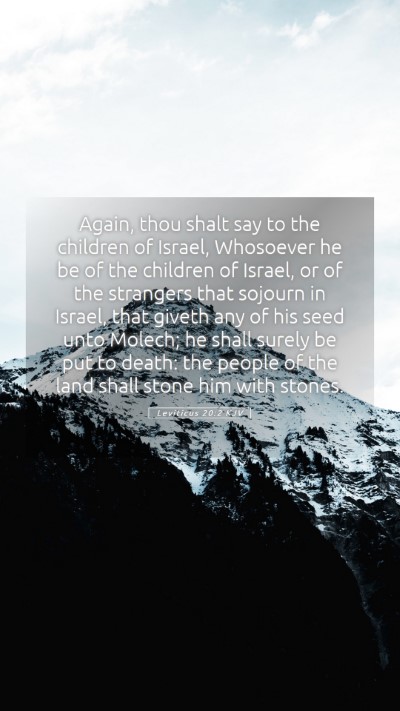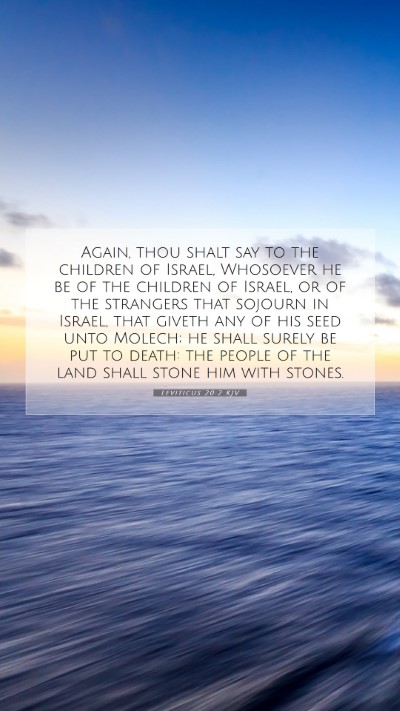Understanding Leviticus 20:2: A Comprehensive Analysis
The verse Leviticus 20:2 states: "And thou shalt say to the children of Israel, Whosoever he be of the children of Israel, or of the strangers that sojourn in Israel, that giveth any of his seed unto Molech; he shall surely be put to death: the people of the land shall stone him with stones." This verse addresses the severe consequences associated with child sacrifice to the pagan deity Molech, reflecting the gravity of idolatry and the divine laws during the time of Israel.
Key Themes and Meanings
- Idolatry and Punishment: The text underscores the seriousness of idolatry. Worshiping Molech, which often involved the abominable practice of child sacrifice, was met with the most severe penalty - death.
- Community Responsibility: The community is called to action, highlighting societal responsibility in upholding divine laws. The phrase "the people of the land shall stone him" indicates that the act of judgment is not solely for the religious authorities but for the community.
- Inclusivity of Judgment: The reference to both Israelites and strangers signifies that all within the community are held to the same standard. This reflects God's unified moral law applicable to all inhabitants, not just Israel's descendants.
Historical Context
In ancient Israel, the practice of child sacrifice was a grave sin. Scholars like Matthew Henry comment on the broader cultural context, elucidating how the surrounding nations conducted such practices in worship of their deities. The Lord through Moses sought to distinguish Israel from these pagan practices.
Albert Barnes adds that the law was intended to preserve not just the lives of children but the moral and spiritual fabric of Israelite society because allowing such a practice would lead to the corruption and eventual downfall of the nation.
Commentary and Exegesis
Adam Clarke elaborates on the role of Molech as a representation of the most abhorrent forms of idol worship, where children were sacrificed in the hopes of favor from this false god. The sanctity of life is a recurring theme in Scripture, with many passages echoing God's disdain for such practices.
This verse serves both as a warning and a moral guideline, emphasizing that engaging in worship contrary to God’s commandments invites dire consequences. It reflects a call to faithfulness, urging adherence to God's laws to ensure national wellbeing.
Application of the Verse Today
Understanding Leviticus 20:2 involves examining its relevance for contemporary audiences. While modern society may no longer face the literal practice of child sacrifice, the principles of the verse echo through issues of morality, ethics, and societal responsibility.
This verse prompts reflection on the forms of idolatry in today’s world, challenging individuals and communities to identify and reject any practice that might compromise their moral and spiritual integrity.
Related Bible Cross References
- Exodus 22:29: The law prohibiting child sacrifice - “You shall not delay to offer from the fullness of your harvest and from the outflow of your presses. The firstborn of your sons you shall give to me.”
- Deuteronomy 12:31: A firm warning against adopting the practices of other nations: “You shall not worship the Lord your God in that way, for every abominable thing that the Lord hates they have done for their gods.”
- Jeremiah 32:35: A reminder of past transgressions where children were burned in sacrificial rites, “And they built the high places of Baal that are in the Valley of the Son of Hinnom, to offer up their sons and their daughters to Molech.”
Conclusion
Leviticus 20:2 presents profound insights into the meaning of Bible verses regarding the sanctity of life, the seriousness of idolatry, and communal responsibility for maintaining moral standards. Engaging with this passage through careful study and meditation offers valuable bible study insights for individuals and groups seeking to deepen their understanding of Scripture.
The contemporary application urges believers to reconsider modern idols and influences that may undermine their faith, paralleling the exhortation against ancient idolatry found in Scripture. Thus, the study of this passage contributes significantly to the larger discourse on Bible verse interpretations and Bible verse explanations.


